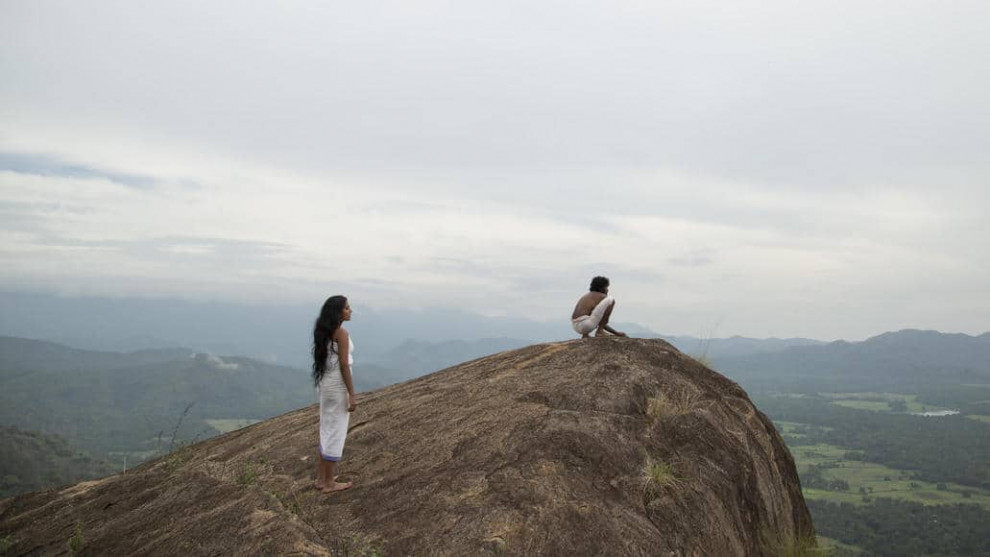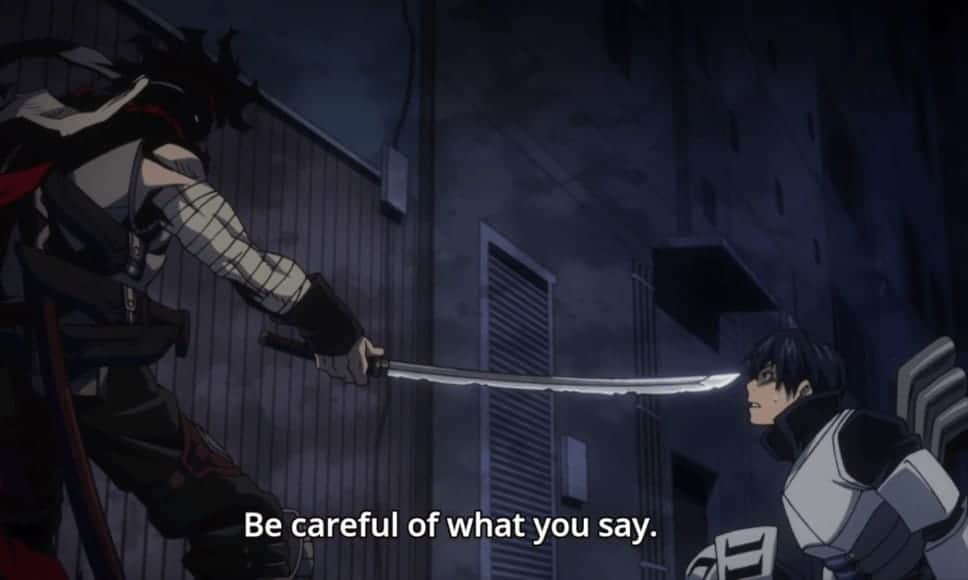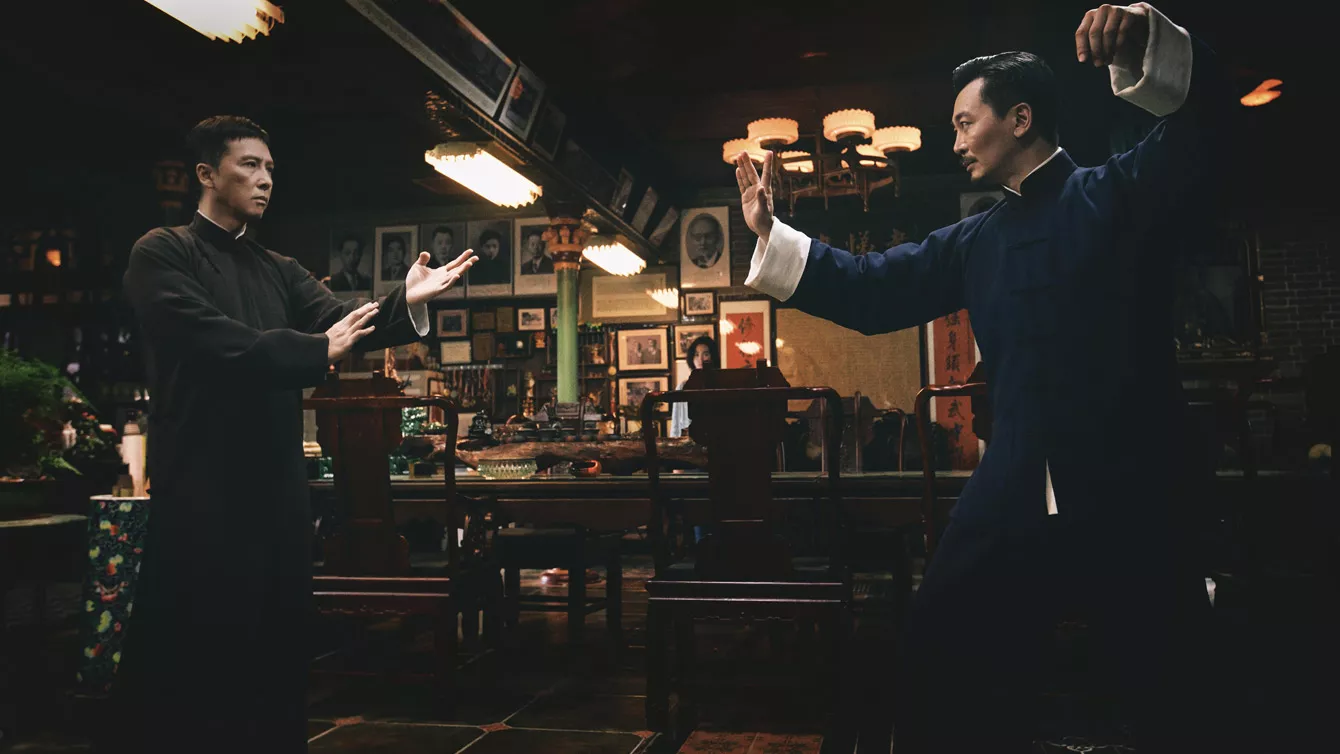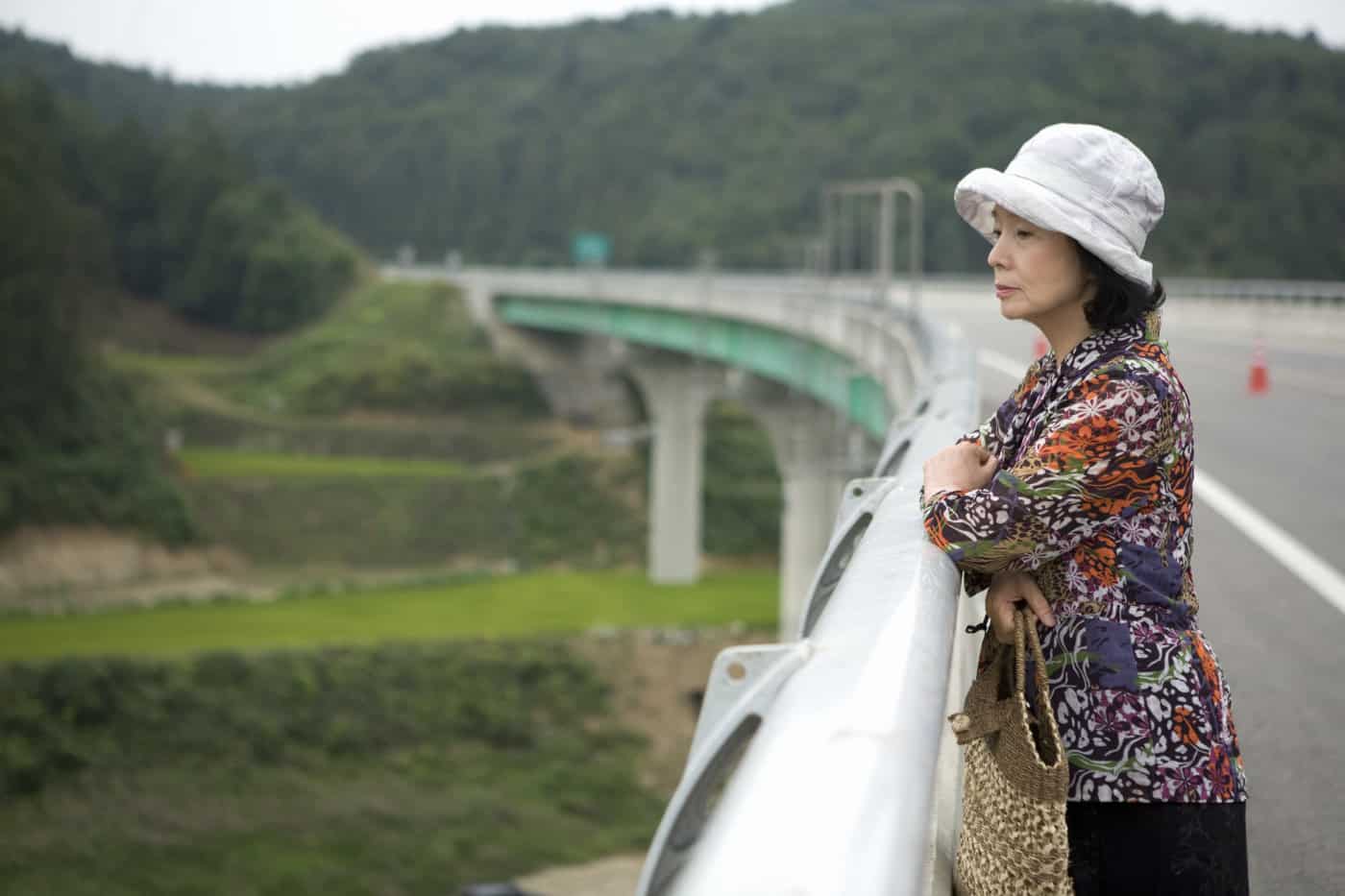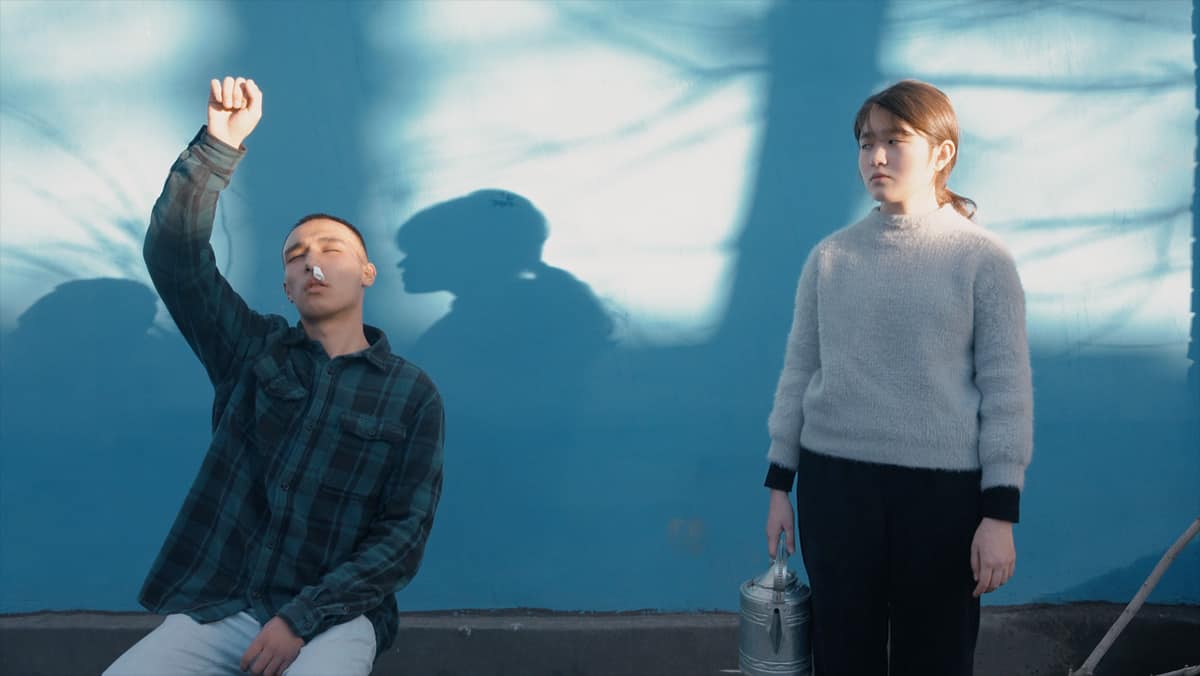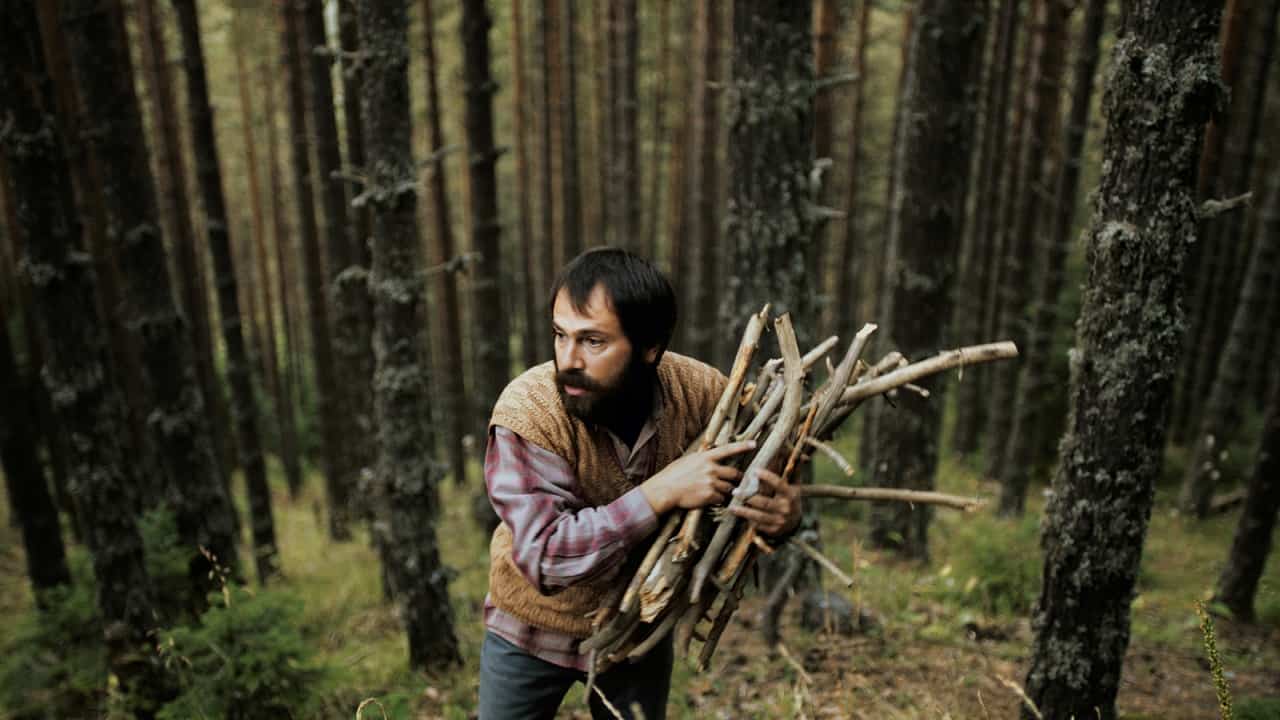Not many films from Sri Lanka reach Western audiences, and thus it is always a pleasure to watch movies from the country. Furthermore, “Children of the Sun” is a significant movie as one of the very few (or even the only one) to speak so bravely about women's condition in the country, the various “invisible” tribes of the country, like the Gaadi (the titular Children of the Sun) and the role the British played both in their massacre and their eventual integration in local society (thanks to Bastian Meiresonne for the information).
“Children of the Sun” is screening at the International Film Festival Rotterdam

In 1814, a year before the British colonized Sri Lanka, Tikiri's husband and other Buddhist nobles try to oust the Tamil king, after the instigation of a British agent, who is soon revealed to play a very shady game. The Buddhists are double-crossed and get ambushed by the king's forces, and most of them end up dead. The king's punishment, however, does not stop there, as the wives of the rebels are also punished, given a choice either to commit suicide by drowning in the river or to marry someone from a lower cast, and particularly the Outcasts, which were considered one of the lowest, in essence living by the meager handouts they receive from the aristocrats. Tikiri is the only one who does not succumb to suicide and soon finds herself married to Vijaya, who wins her in a race of sorts after a rather brutal ritual.
The girl, however, cannot adapt to the lowery ways of the Outcasts, and particularly the fact that she has to be bare-breasted at all times. Her attitude creates much trouble for both Vijaya and the tribe as a whole, and the couple find themselves ousted by the clan's elder. Having to fend for themselves, they start roaming the forests, with Vijaya exhibiting constant affection and Tikiri remaining distant and silent. Slowly, however, a relationship starts to form but at that point, the Buddhists, this time having the same agent and the British army on their side, manage to depose the king, leading to a meeting of Vijaya with her former husband.

Vithanage directs a film with some very specific purposes. The first one is to highlight the despicable role the British played in the politics of the country. The second one to show how segregated the Ceylonese society of the time was, with the aristocrats owning everything and the lower castes next to nothing. The harshness of the laws and the treatment of the women, who were considered, in essence, stock is another. At the same time, having a woman from the high caste end up in the lower one creates a rather interesting narrative, and a romantic relationship that is quite enjoyable to watch, despite the fact that is particularly one-sided, for the majority of the movie.
Somewhere here, however, is where the most major issue of the narrative lingers, since the troubles Tikiri causes for not wanting to remove her shawl are too big, with the turning point for her behaviour bordering on the ridiculous. I can understand the shame that causes her behaviour but the way the Outcasts and, even more, Vijaya treat her is not justified at all, even for her undoubted and great beauty. Particularly the fact that Vijaya continues to put his life in danger despite the fact that he gets almost no response from her becomes tiresome after a fashion, as Tikiri roams around like a spoiled princess, continuously causing trouble to everyone and without giving the slightest evidence of gratitude. I understand of course, that the relationship of the two is just a “mechanism” Vithanage uses to make the aforementioned comments, but I still think that he went too far.

On the other hand, visually the film is impressive, with DOP Rajeev Ravi making great use of the tropical environment in order to present images of great beauty. The road-trip part of the film benefits the most from his work, with the same applying to Tapas Nayak work in the sound design and Sreekar Prasad's in the editing, with the latter also inducing the film with a relatively fast pace that allows the many arcs of the story to unfold with ease and in a very entertaining way. Lastly, the work done in the costumes by Buddhi Sanjaya Edirisnghe and Janaka Ullandupitiya is top-notch, adding to the overall realism of the depiction of the differences between the castes.
Dinara Punchihewa shines through her silence as Tikiri, with Vithanage and Ravi making every effort to highlight her undeniable beauty from every angle. Sajitha Anuththara had a much more demanding role and he delivers in great fashion, with his almost constant smile, despite all the obstacles he finds in his way, becoming the trademark of the movie.
The romantic/shame aspect of “Children of the Sun” could benefit from better writing and implementation, but in the end, the rest of the film's traits overshadow this flaw and the movie ends up being a more than interesting watch. Apart fro that though, and for the reasons mentioned in the prologue, “Children of the Sun” is a landmark for Sri Lankan cinema, and that is where its true value lies.


